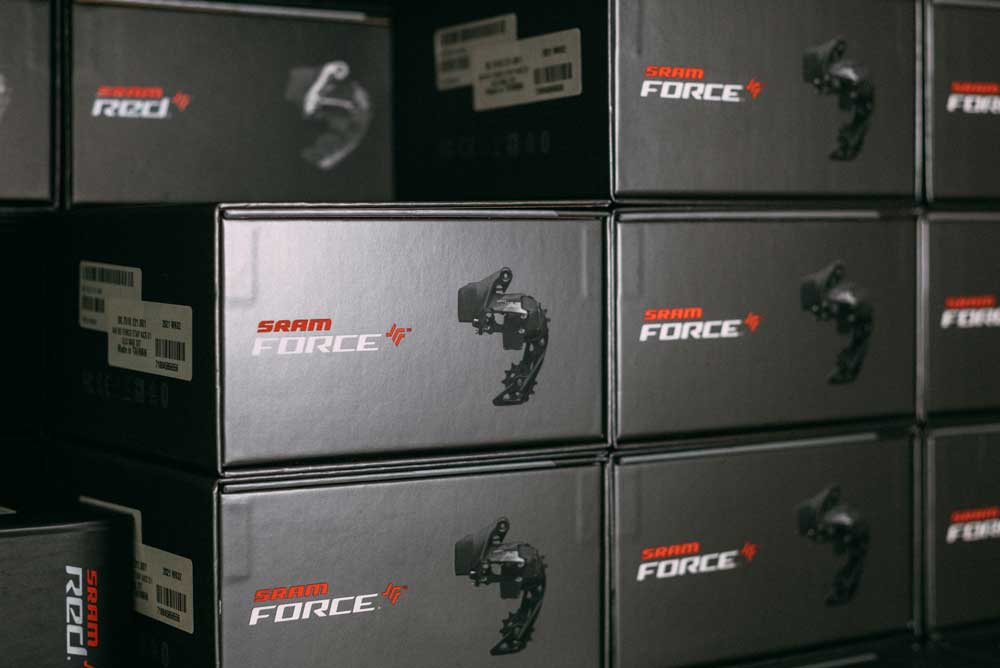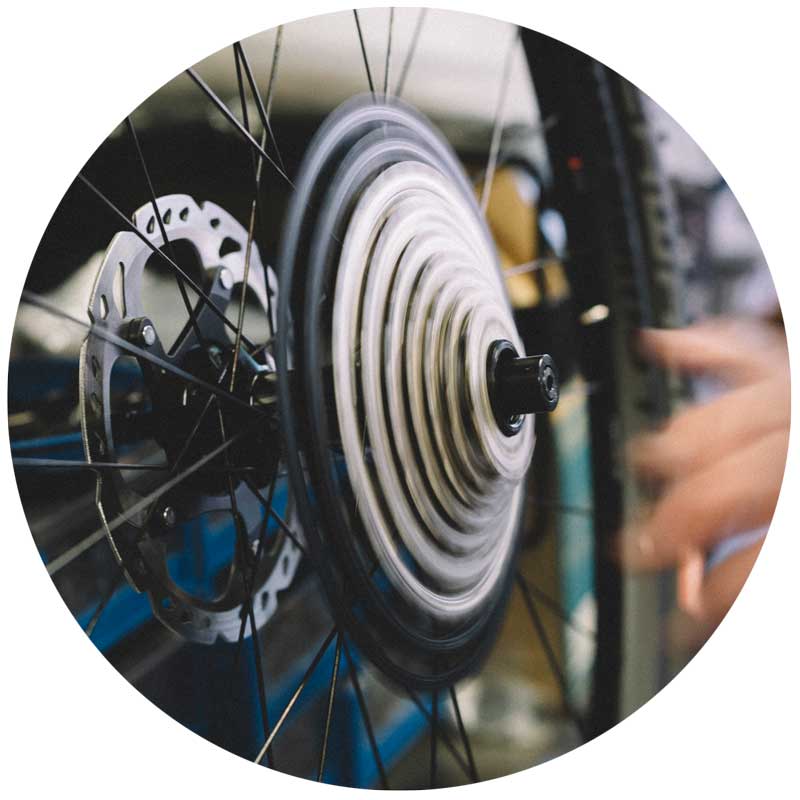Cycling is more than just a mode of transportation—it’s a lifestyle. For some, it’s a way to stay active and healthy, while for others it’s about commuting, exploring the outdoors, or finding new ways to connect with friends and family. With so many options available, choosing the right bike can feel overwhelming. The good news is that with the right information and support, you can find a bike that fits your lifestyle, goals, and comfort level. According to Everyday Health, cycling at a relaxed pace of 10 to 12 mph burns about 518 calories per hour, making it an excellent choice for fitness as well as fun. In this guide, we’ll explore the different types of bikes, factors to consider before buying, and how a professional bike shop can help match you with the perfect ride.
Understanding Your Riding Goals
The first step in choosing the right bike is determining how you plan to use it. Will you be cycling primarily for exercise, commuting to work, running errands, or enjoying weekend rides with family? Fitness riders may prefer road bikes designed for speed and endurance, while commuters often look for hybrids that balance comfort with efficiency. Mountain bikes are best for off-road adventures, while cruisers suit casual rides around the neighborhood. Having a clear picture of your riding goals makes the selection process easier and ensures your bike supports your lifestyle.
Exploring Different Bike Types
Modern bikes come in many categories, each tailored to specific riding needs. Road bikes are lightweight and built for speed on paved roads. Mountain bikes feature sturdy frames and suspension systems designed to handle rough terrain. Hybrid bikes blend the features of road and mountain bikes, offering versatility for commuting or light trail riding. Cruiser bikes emphasize comfort with wide seats and upright handlebars, making them ideal for leisurely rides. Electric bikes, or e-bikes, have also grown in popularity, offering pedal-assist technology that helps riders tackle longer distances or hills with ease. Visiting a bike shop allows you to compare these types in person and test which one feels best for your intended use.
Considering Fit and Comfort
One of the most important aspects of choosing a bike is ensuring that it fits your body properly. A poorly fitted bike can lead to discomfort, fatigue, and even injury. Professional bike shops specialize in fitting services, adjusting frame size, handlebar height, and saddle position to suit your unique body measurements. They can also recommend accessories like padded seats, ergonomic grips, or suspension seat posts to enhance comfort. Investing in a proper fit makes every ride more enjoyable and encourages you to ride more often.
Evaluating Your Budget
Bikes range widely in price, from affordable entry-level models to high-performance machines costing thousands of dollars, according to our team. While it may be tempting to buy the cheapest option, investing in a quality bike pays off in durability, performance, and comfort. Consider your budget realistically and discuss it with your local bike shop, where staff can help you find the best bike within your price range. Many shops also offer financing options or certified pre-owned models, making it easier to balance cost and quality.
Factoring in Fitness Benefits
For many riders, fitness is a top priority when purchasing a bike. Cycling offers a low-impact workout that strengthens muscles, improves cardiovascular health, and helps with weight management. A bike shop can help you choose a model that supports your fitness goals, whether that means a lightweight road bike for endurance training or a hybrid for consistent daily exercise.
Considering Terrain and Environment
Your local environment plays a significant role in the type of bike you should choose. If you live in an urban area with paved roads, a road or hybrid bike may be ideal. Rural riders with access to trails and rough terrain may prefer mountain bikes. Those living in hilly regions might benefit from an e-bike that provides extra assistance when climbing. A bike shop with knowledge of your area can offer valuable insights and recommend models best suited for your specific conditions.
Exploring Accessory Options
A bike isn’t complete without the right accessories. Helmets, lights, locks, water bottle cages, and repair kits are all essential items that make cycling safer and more convenient. For commuters, panniers, racks, or fenders can make daily rides more practical. A professional bike shop can help you choose accessories that align with your lifestyle and ensure they’re properly installed. These extras not only improve functionality but also enhance the overall cycling experience.
Prioritizing Safety Features
Safety should always be a top consideration when selecting a bike. Reliable brakes, durable tires, and reflective features all play a role in keeping riders safe. Many modern bikes come with built-in safety technology, but upgrades may also be available. A bike shop can inspect and recommend safety enhancements tailored to your needs, giving you peace of mind on every ride. Taking safety seriously ensures that your cycling experience remains enjoyable and worry-free.
Understanding Maintenance Needs
All bikes require regular maintenance to stay in top condition. Simple tasks like keeping tires properly inflated, lubricating the chain, and checking brake pads go a long way toward ensuring longevity. However, periodic professional servicing is also important. Local bike shops often provide maintenance packages, tune-ups, and repairs that keep your bike performing like new. When choosing a bike, consider how much upkeep you’re willing to do yourself versus relying on professional support. A quality shop will guide you through both options.
Trying Before You Buy
No matter how much research you do, the best way to choose the right bike is to test it yourself. Reputable bike shops encourage test rides so you can get a feel for how a model handles, shifts, and fits your body. Trying out different styles helps you make a confident decision and avoid buyer’s remorse. Staff can also adjust bikes during test rides to give you a better sense of how the final fit will feel. This hands-on experience is invaluable when selecting a bike that matches your lifestyle.
Considering Long-Term Value
When investing in a bike, think beyond the initial purchase. A well-chosen bike can provide years of use and countless hours of enjoyment. High-quality models tend to hold their value better, and some even come with warranties that protect your investment. Choosing a bike through a professional shop ensures that you not only get expert advice but also long-term support for maintenance, upgrades, and accessories. The long-term value of a reliable bike goes far beyond the purchase price.
Matching Lifestyle to Bike Choice
Ultimately, the right bike is one that fits seamlessly into your daily life. Fitness enthusiasts may prioritize lightweight frames and performance features, while families might look for comfort and versatility. Commuters need practical bikes with storage solutions, and adventurers require durable models capable of handling varied terrain. Discussing your lifestyle with a knowledgeable bike shop professional ensures that every detail—from frame style to accessories—is tailored to your needs. This personalized approach helps you make the most of your cycling experience.
Choosing the right bike requires careful thought, but it doesn’t have to be overwhelming. By evaluating your goals, budget, environment, and comfort needs, you can find a bike that enhances your lifestyle and keeps you motivated to ride. With expert guidance from a trusted bike shop, the process becomes much easier and more rewarding. At Stage 21 Bikes, Inc, we are dedicated to helping riders of all ages and experience levels find the perfect bike, offering expert advice, fitting services, and ongoing support. Contact us today to start your journey toward a healthier, more active lifestyle with the right bike for you.





